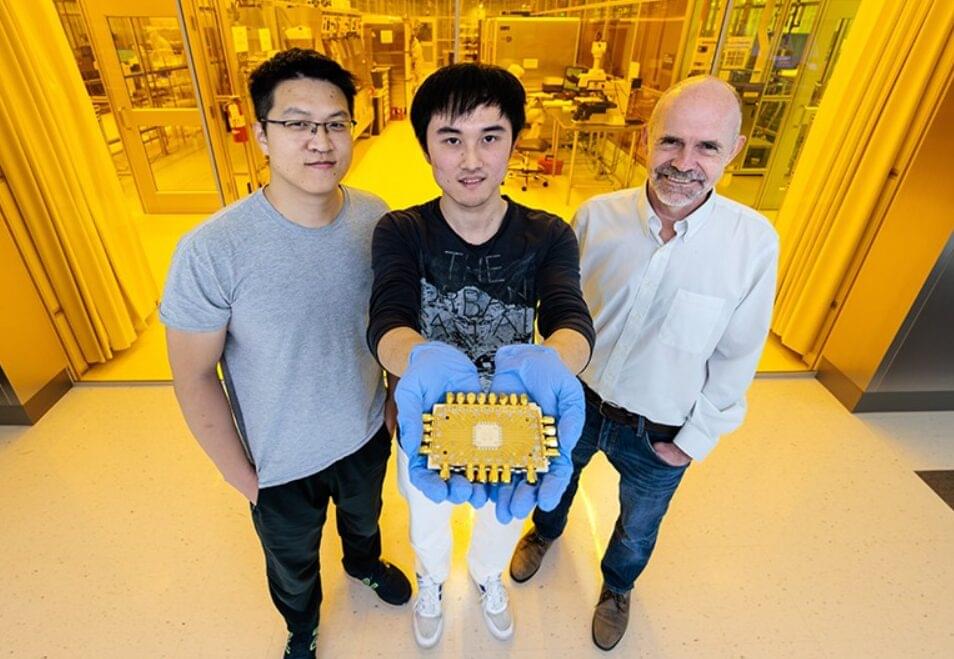New research demonstrates a brand-new architecture for scaling up superconducting quantum devices. Researchers at the UChicago Pritzker School of Molecular Engineering (UChicago PME) have realized a new design for a superconducting quantum processor, aiming at a potential architecture for the large-scale, durable devices the quantum revolution demands.
Unlike the typical quantum chip design that lays the information-processing qubits onto a 2-D grid, the team from the Cleland Lab has designed a modular quantum processor comprising a reconfigurable router as a central hub. This enables any two qubits to connect and entangle, where in the older system, qubits can only talk to the qubits physically nearest to them.
“A quantum computer won’t necessarily compete with a classical computer in things like memory size or CPU size,” said UChicago PME Prof. Andrew Cleland. “Instead, they take advantage of a fundamentally different scaling: Doubling a classical computer’s computational power requires twice as big a CPU, or twice the clock speed. Doubling a quantum computer only requires one additional qubit.”
